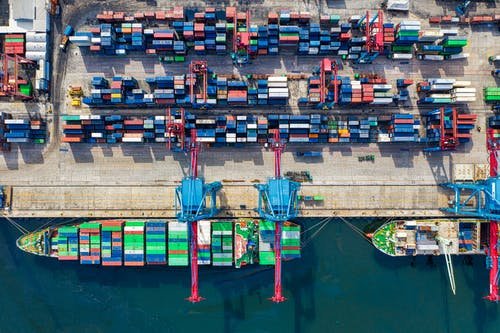International trade plays a major role in the development of a country’s economy. Accordingly, there are several goods and services which are lacking in a country. Therefore, Import Export Data are the keys to success in fulfilling the needs of a country’s population.
The manufacturing countries boost their economies by exporting in large quantities, and the importing countries boost theirs by fulfilling their people’s needs.
The import-export data is the main source of getting inside the shoes of trading countries. The market is highly competitive, and to win the race, it is a must to gain deeper insights into the successful and failed transactions over the decades. Businesses can acquire free import export data online through various websites which are designed for the same purpose.
By knowing the trade data, the import-export industry and the government can know the current economic status of a particular country. Moreover, the trade data reveals all the necessary information about the business and helps the importing and exporting companies to draw their trade plan.
The 6 Major Values Of Import Export Data
There are many reasons for the importance of trade data in the trade industry. But the most practical reasons are:
1. Economic Status
The import and export data of a country reveals its current economic position. Whether its status is healthy or it’s facing downfall, every information is embedded in the data. The import-export industry adds a major percentage to a country’s GDP.
Moreover, a country’s status is considered to be on the mark if its exports are greater than its imports. In case of a trade deficit, it helps the industry take suitable measures, and the backlogs are visible with the help of trade insights.
2. Business Plans
The trade data reveals all the necessary information from imports to exports. Therefore, it is useful to acquire details such as import-export data with importer name, exporter name, product details, quantity, value, shipment origin, destination, etc. Government institutions and custom departments primarily collect these details.
Moreover, the data is also of significant value to shipping companies and business organizations. It helps them draw their trade plan and carry out market research. Hence, the organizations can predict the future market trends and make the decision likewise.
3. Competition
The whole global market is driven by competition. Thus, the trade data eases the companies by providing information about competitors and market trends. Moreover, it helps the businesses in the import-export industry analyze their target market and erase external risks.
Hence, by gaining data insights, organizations can plan their businesses better and achieve their goals effectively and efficiently.
4. Diversification And Expansion
International import-export data enables businesses to use their resources better, allowing them to diversify their present markets and expand into new ones. As a result, companies worldwide are looking to grow into new areas and diversify their portfolios.
Hence, the companies can gain information about profitable merchandise, pricing, etc., which can help them develop precise estimates and thorough strategies.
5. Market Risks
There is no market without risks. Due to the dynamic environment, the threats keep on fluctuating. For example, the COVID-19 pandemic has brought a lot of hazards to the import-export industry.
All the organizations and enterprises worldwide have faced several backlogs. For example, there were problems related to transportation due to blocked routes; the tourism industry had a major downfall and several other issues.
However, if the business keeps itself updated through trade data, it can find a solution to combat these blocks and even predict and overcome the upcoming hurdles. Furthermore, companies can analyze the trade scenario of their competitors and plan their strategies accordingly.
6. Importers And Exporters
Through the international trade data, the business organizations and government agencies can gain information about major importing and exporting countries. Furthermore, it is useful for companies as the data will help them to analyze the strategies being used by top companies worldwide.
As per the data of World Bank, the major exporting countries and their revenues in 2019 were:
- China- $2,643,376.93 million
- United States- $2,528,267 million
- Germany- $1,811,351.01 million
Similarly, the top importing countries in 2019 were the United States, followed by China and Germany. The positions keep on fluctuating year by year due to external and internal market factors, and therefore the reliance on trade data becomes crucial.
The Ultimate Trade Data Source
It is very easy to gain free import-export data online by surfing the web. The companies can refer to the reports provided by world trade data banks.
Moreover, trade information via websites such as Trademo is also very useful. The primary motive of trademo is to make global trade easier for companies. Trademo provides flexibility to its audience by giving every single detail about international business.
The company empowers the global business, thereby lending trade opportunities to dealers worldwide. Trademo delivers details such as import-export data with importer name, shipment details, etc. Furthermore, it helps worldwide organizations in eliminating inefficiencies related to global trade.
The Final Observations
The import-export industry is the main driver of a country’s economic and GDP growth. The competition in the international market is rigorous and continuous. Therefore, the import and export data becomes crucial for each industry and company to analyze several parameters and make decisions.
This concludes without any debate that the international trade data is of significant value in the import-export industry. Furthermore, these details help various organizations throughout the world with their trade planning and execution. Thus, trade information helps business organizations and is a primary tool for custom departments and government agencies.

